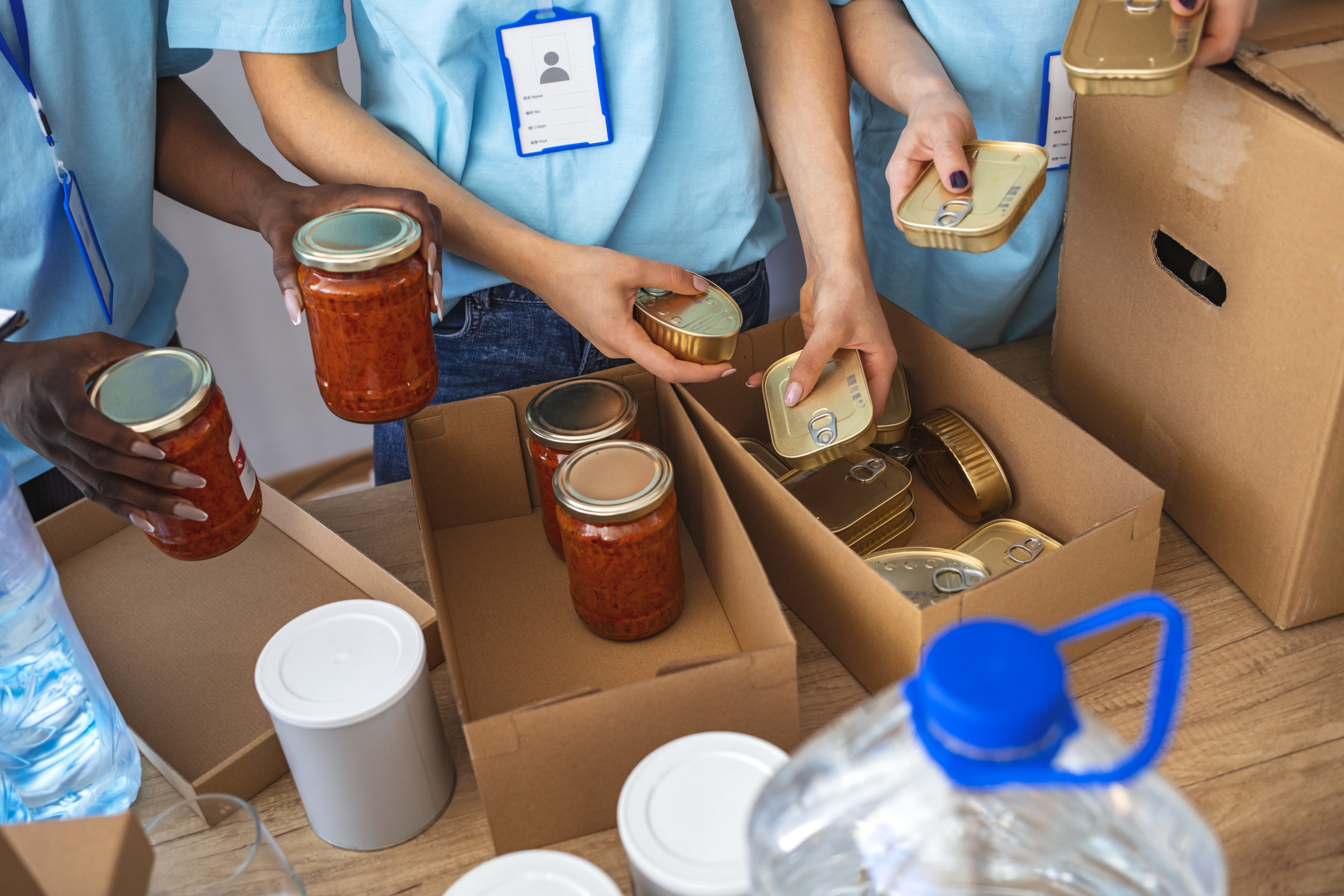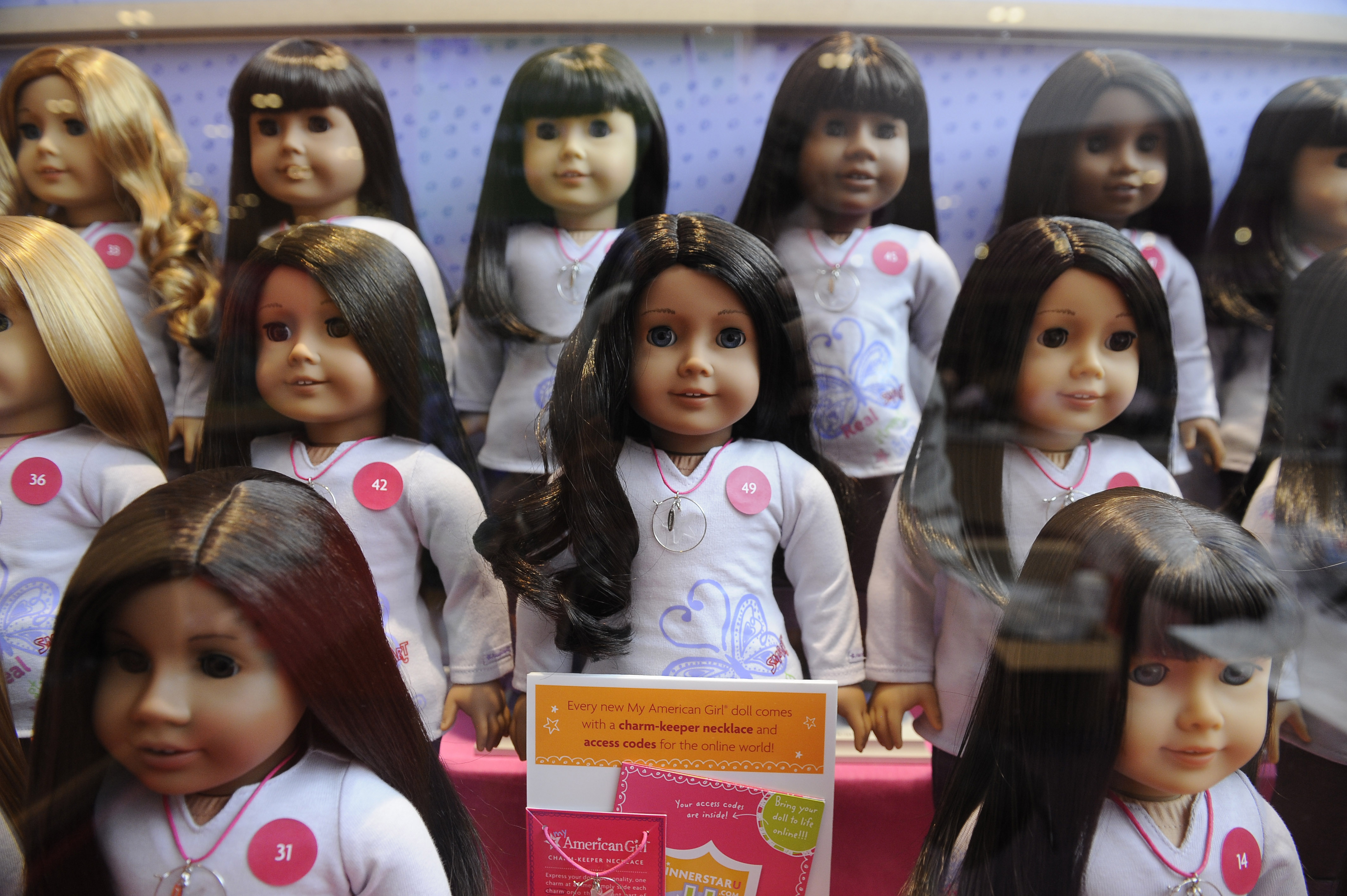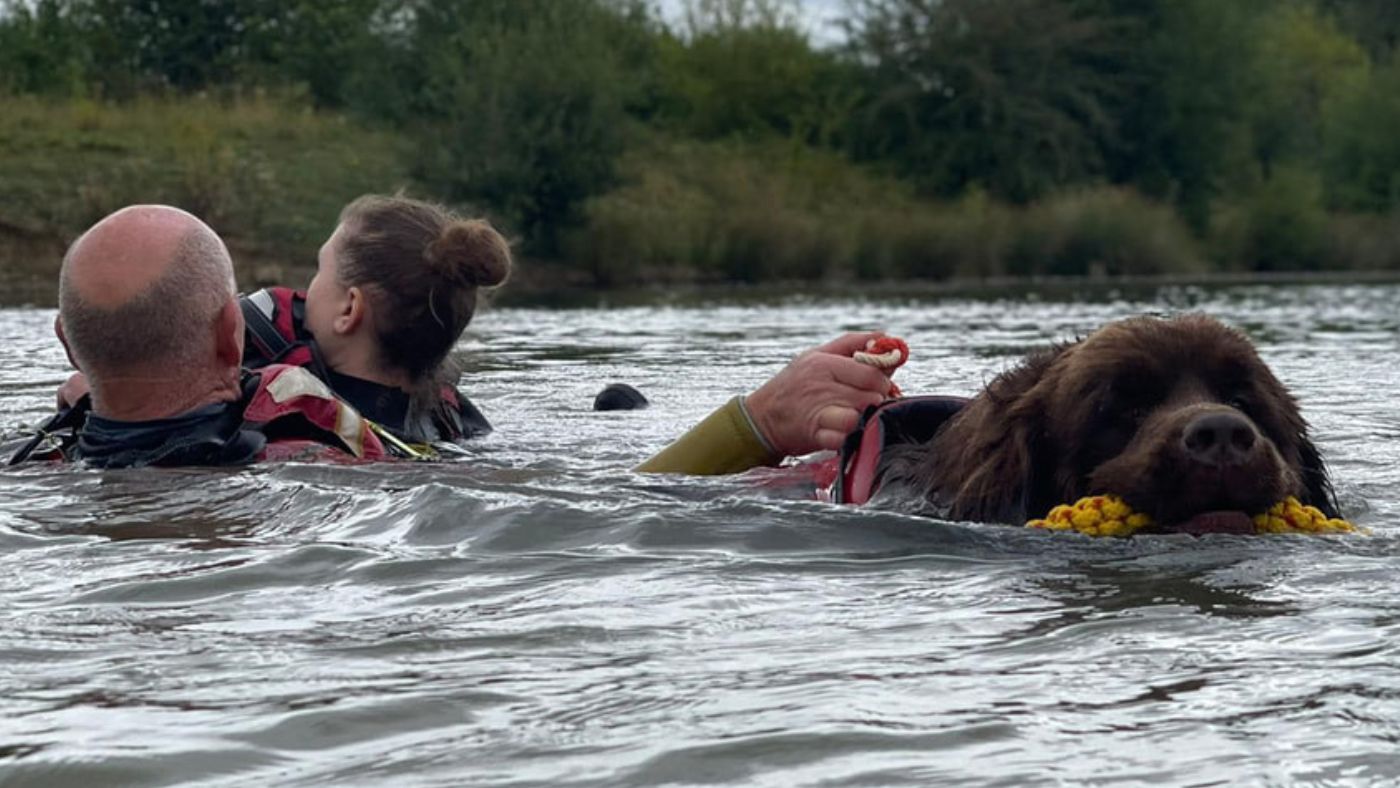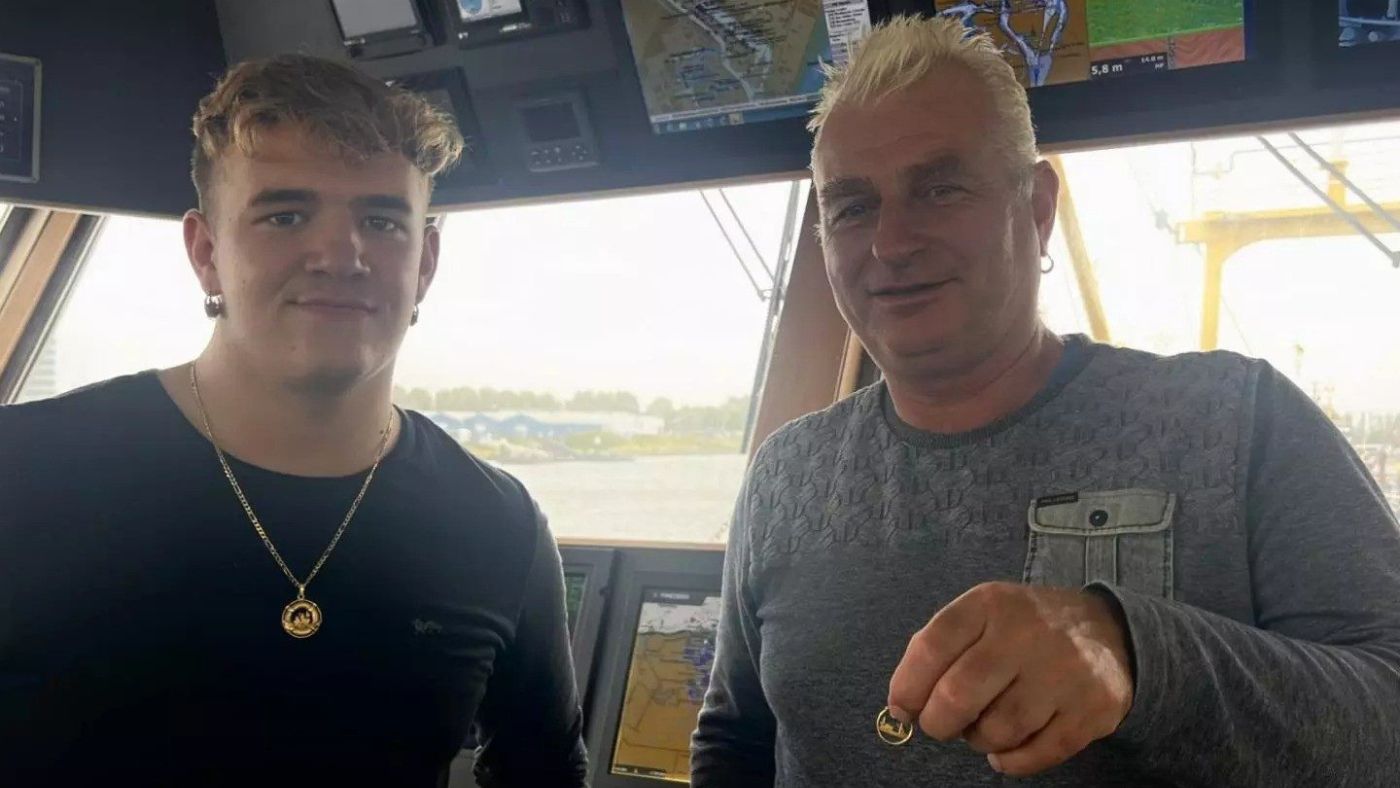The week's good news: July 16, 2020
It wasn't all bad!


- 1. Community refrigerators help fight hunger in Los Angeles
- 2. Holocaust survivor connects with family of American soldier who liberated her
- 3. Ohio boy tracks down family to return dog tag lost decades ago
- 4. Nebraska retiree has donated his platelets more than 700 times
- 5. 12-year-old trumpet player performs for health-care workers
A free daily email with the biggest news stories of the day – and the best features from TheWeek.com
You are now subscribed
Your newsletter sign-up was successful
1. Community refrigerators help fight hunger in Los Angeles
In neighborhoods across Los Angeles, community refrigerators are appearing, filled with food that is free for anyone who needs it, any time of day. Since the LA Community Fridges project launched earlier this month, six refrigerators have been set up across the city, with another in nearby Long Beach. Refrigerators are installed at businesses, which supply the electricity, and filled with food donated by local residents, restaurants, and food delivery services. Volunteers make sure the refrigerators stay clean and stocked with a variety of items. Paloma Vergara of Reach for the Top, the organization coordinating the effort, said the program helps people in all stages of life. "Food insecurity is a broad spectrum," she told NBC Los Angeles. "It can be anybody." Joshua Mock, the owner of Little Amsterdam Coffee, sponsors a refrigerator because he believes "the best thing you can do is lend a hand."
2. Holocaust survivor connects with family of American soldier who liberated her
Lily Ebert never forgot about the kindness shown to her by an American soldier during the darkest time of her life. Ebert, 90, was born in Hungary, and at 14, was sent to Auschwitz. After being liberated in April 1945, an American GI gave her a German banknote inscribed with an optimistic message. "The start to a new life," he wrote. "Good luck and happiness." He was "the first person who was kind and wasn't an enemy," Ebert told CNN. Her 16-year-old great-grandson, Dov Forman, recently tweeted photos of the banknote, hoping to learn the identity of the man, who had also written "assistant to Chaplain Schachter" on the bill. Forman soon learned his name was Hyman Schulman. A Jewish soldier from Brooklyn, he died seven years ago, but Ebert and Forman set up a video meeting with his children. "It means so much that we can now connect with the family," Ebert said.
The Week
Escape your echo chamber. Get the facts behind the news, plus analysis from multiple perspectives.

Sign up for The Week's Free Newsletters
From our morning news briefing to a weekly Good News Newsletter, get the best of The Week delivered directly to your inbox.
From our morning news briefing to a weekly Good News Newsletter, get the best of The Week delivered directly to your inbox.
3. Ohio boy tracks down family to return dog tag lost decades ago
When Kolton Conrad found a U.S. Marine's dog tag in the Hocking River, the 12-year-old knew he had to track down its owner. The Lancaster, Ohio, resident was kayaking on July 4 when he made the discovery, and could make out the name "Rhonemus" on the tag. His mom posted a photo of it on Facebook, asking friends if they knew anyone with the last name. Within six hours, she was in contact with Kimberly Greenlee. Greenlee's brother, Steven Rhonemus, died in 1974 following a motorcycle crash. The Conrads met Greenlee at her brother's favorite park to give her his dog tag. "It's just amazing to think about, this tag was lost for 46 years, and for this little boy to find it on Independence Day, of all days," she told the Lancaster Eagle-Gazette. "And for him to realize the meaning behind the tag, and to hold onto it, to help a stranger's family, it's amazing."
4. Nebraska retiree has donated his platelets more than 700 times
When he retired in 1995, Sherman Hirsch discovered something he could do with his newfound free time: donate his platelets. Since then, the 89-year-old Nebraska resident has donated his platelets more than 700 times, joking with Good Morning America that he is "definitely on a first-name basis" with the staff at his local Red Cross. While still working as a teacher, Hirsch regularly donated blood after school. It takes longer to donate platelets, about three hours, and Hirsch does this every other Monday. "I decided this is something I can do to help out other people and I've always been blessed with good health," he told GMA. "It's easy to do and it doesn't cost me anything." The Red Cross says that platelets, tiny cells in the blood that form clots and stop bleeding, are needed every 15 seconds in the United States to help people fighting cancer, traumatic injuries, and chronic diseases.
A free daily email with the biggest news stories of the day – and the best features from TheWeek.com
5. 12-year-old trumpet player performs for health-care workers
Jason Zgonc uses music to show his appreciation for the health-care workers saving lives at Emory Decatur Hospital in Georgia. Every night, the 12-year-old trumpet player stands outside the hospital during shift change and puts on a mini-concert, performing songs like "Danny Boy" and "Somewhere Over the Rainbow." He was inspired by a New York Philharmonic trumpeter who stands on his balcony and plays in honor of health-care workers. Zgonc, who has been performing outside the hospital for more than two months, told CBS News he appreciates the doctors, nurses, and other staffers for "working so hard every day trying to save people's lives," and they can count on him to "be out here playing for them." The first time nurse Natalie Schmidts heard the sounds of Zgonc's trumpet, she was coming off a rough shift, and he helped change her perspective. "It gives you a sense of community," she said.
Catherine Garcia has worked as a senior writer at The Week since 2014. Her writing and reporting have appeared in Entertainment Weekly, The New York Times, Wirecutter, NBC News and "The Book of Jezebel," among others. She's a graduate of the University of Redlands and the Columbia University Graduate School of Journalism.
-
 How the FCC’s ‘equal time’ rule works
How the FCC’s ‘equal time’ rule worksIn the Spotlight The law is at the heart of the Colbert-CBS conflict
-
 What is the endgame in the DHS shutdown?
What is the endgame in the DHS shutdown?Today’s Big Question Democrats want to rein in ICE’s immigration crackdown
-
 ‘Poor time management isn’t just an inconvenience’
‘Poor time management isn’t just an inconvenience’Instant Opinion Opinion, comment and editorials of the day
-
 The week's good news: Sept. 21, 2023
The week's good news: Sept. 21, 2023It wasn't all bad!
-
 The week's good news: Sept. 14, 2023
The week's good news: Sept. 14, 2023It wasn't all bad!
-
 The week's good news: Sept. 7, 2023
The week's good news: Sept. 7, 2023feature It wasn't all bad!
-
 Lives transformed by swimming with Newfoundland dogs
Lives transformed by swimming with Newfoundland dogsfeature Good news stories from the past seven days
-
 The week's good news: August 31, 2023
The week's good news: August 31, 2023feature It wasn't all bad!
-
 The week's good news: August 17, 2023
The week's good news: August 17, 2023feature It wasn't all bad!
-
 Earring lost at sea returned to fisherman after 23 years
Earring lost at sea returned to fisherman after 23 yearsfeature Good news stories from the past seven days
-
 Farmer plants 1.2m sunflowers as present for his wife
Farmer plants 1.2m sunflowers as present for his wifefeature Good news stories from the past seven days
